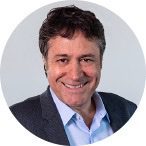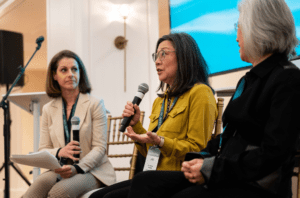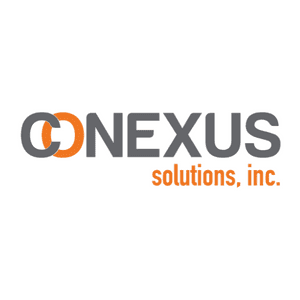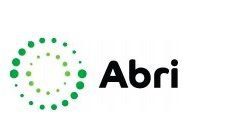
Following Announcement of Layoffs, Century Therapeutics Outlines 3-Year Strategic Plan
Lalo Flores, Ph.D., CEO of Philadelphia-based Century Therapeutics, laid out the company’s three-year strategic plan. Flores was speaking at the JP Morgan Healthcare conference on Wednesday, January 18, 2023.
This year, 2023, Century is focused on the execution of its vision by advancing multiple development candidates, primarily the Phase I ELiPSE-1 clinical trial of CNTY-101 in patients with relapsed or refractory CD19+ B-cell malignancies.
Flores dubbed 2024 a year of acceleration, with multiple clinical-stage candidates. Further, the company expects CNTY-101 to generate clinical data providing initial proof of concept. And finally, in 2025, validation, with expectations of initial clinical data with gamma delta T-cell programs, including CNTY-107 in Nectin-4+ tumors and CNTY-102 in lymphoma.
“There is a tremendous amount of value we plan to unlock over the next three years,” Flores said in the presentation, adding that it provided “an estimated cash runway into 2026.”
Flores noted, “We’re not looking to raise capital any time soon, but plan to execute over the next three years.”
Reprioritization and Job Cuts
The presentation follows a major announcement on January 5. Century indicated it was reprioritizing its portfolio and capital allocation to extend the cash runway. This involved de-prioritizing CNTY-103 for glioblastoma and a discovery program in hematologic cancer.

Instead, Century is focusing on CNTY-101, with one follow-on product candidate for lymphoma, CNTY102, and CNTY-107 for Nectin-4+ tumors. It indicated the shift in strategy will not affect its partnered programs with Bristol Myers Squibb.
In addition to shifting focus, the strategy will cut about 25% of staff. In a statement, Flores indicated the changes allowed Century to “right-size the organization.”
Along with the reprioritization, the company’s president of Research and Development, Hy Levitsky, M.D., Ph.D., resigned effective January 31, 2023. His duties will be covered by Luis Borges, Ph.D., CSO and Adrienne Farid, Ph.D., COO and head of Early Development.
In a press statement, Levitsky said, “I leave Century with continued confidence in the vision for next-generation iPSC-derived cell therapies.”
Focusing on the Technology
CNTY-101, Century’s lead compound, is an iPSC-derived chimeric antigen receptor iPSC-derived NK (CAR-iNK) cell therapy. It has been designed to include core Allo-Evasion™ edits. The company’s technology platform is designed to engineer cells that have increased persistence and prevent host rejection.
Noting in his JP Morgan presentation that “only a small portion of patients are eligible for CAR-T,” Flores emphasized that a major issue with first-generation CAR therapies is immune rejection, which significantly decreases the number of doses a patient can receive. “In our view,” he said, “the best way to test iNK, like CNTY-101 … is with repeat dosing in cells protected from rejection.”
CNTY-101 is the first allogeneic cell candidate that has six genetic modifications designed to avoid all major pathways of host versus graft rejection. The company hopes that this design will potentially eliminate the need for lymphodepletion with subsequent cycles in order to improve tolerability and make outpatient administration more viable.
The Phase I ELiPSE-1 trial will evaluate the safety, tolerability, pharmacokinetics and early efficacy of the therapy in r/r CD19+ B-cell cancer patients. The trial involves two schedules, A and B. Schedule A includes a single-dose escalation of the drug with subcutaneous IL-2. Schedule B involves a three-dose schedule per cycle of CNTY-101. The study is expected to launch later this year.
Flores said that CNTY-101 has “the potential to exceed the bar set for autologous therapies and deliver durable responses.”
Like many in the field of CAR, Flores noted that Century also has a focus on what he refers to as the “holy grail,” developing CAR therapies for solid tumors. To date, CAR-T has been very effective in treating hematological cancers, but success in solid tumors has been much more difficult to achieve. He cited four challenges and how Century believes its technology will solve those problems.
The first challenge is trafficking and infiltration. The company’s solution involves improving tumor homing by way of engineered receptors, specifically gamma sigma cells. A second challenge is tumor heterogeneity. The company’s technology engages endogenous immunity and targets multiple tumor pathways. Third, first-generation CAR requires chemotherapy conditioning. Century believes that its approach will eliminate or minimize this requirement. And the fourth challenge is the tumor microenvironment and its ability to suppress immune responses. Century’s solution involves “future engineering strategies,” Dr. Flores said.
“We are very excited about this first class of therapies,” Flores said. “We really think our platform has advantages over existing CAR therapies.”
- About the Author
- Latest Posts
Mark Terry is a freelance writer, editor, novelist and ghostwriter. He holds a degree in microbiology & public health and spent 18 years in infectious disease research and clinical and research genetics prior to his transition to a writing career. His areas of expertise include biotechnology, pharma, clinical diagnostics, and medical practice management. He has written literally thousands of articles, as well as market research reports, white papers, more than 20 books, and many other written materials. He currently lives in Michigan with his family.








